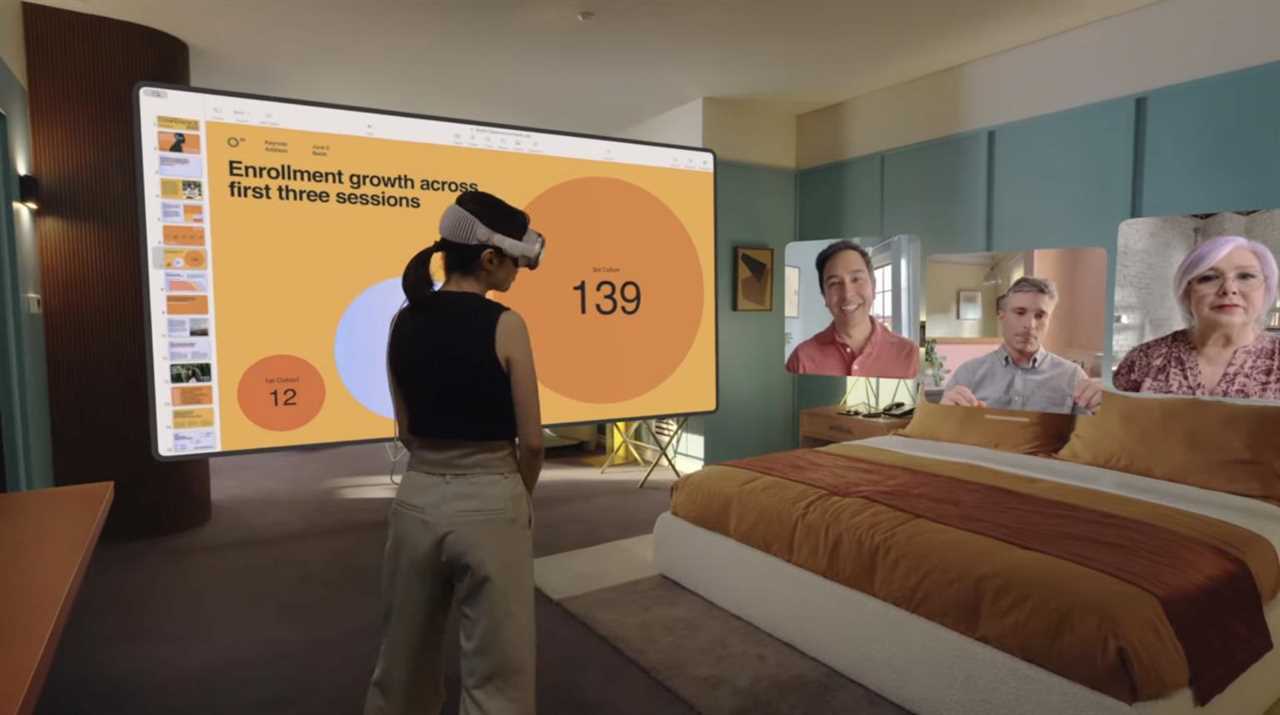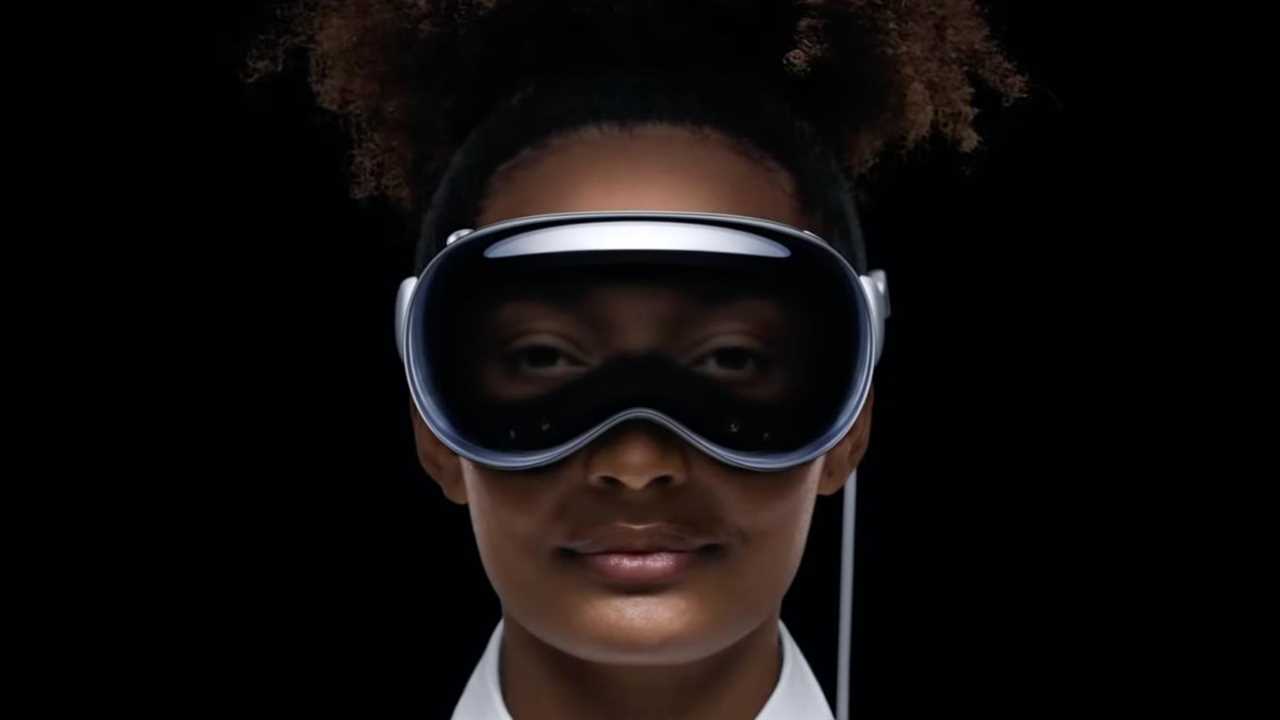Traders betting on a pump for metaverse projects were disappointed yesterday after Apple’s unveiled the Vision Pro headset.
TL:DR
- Apple did not mention the metaverse during the Apple Vision Pro announcement
- Instead, Apple focused on a new phrase — “Spatial Computing”
- The Vision Pro headset comes out later this year for $3,499.00
Image Credit: Apple
What happened during Apple’s event yesterday?
Apple holds an event every year called the Worldwide Developers Conference to show off new technology. This year was especially noteworthy. For the first time since 2014’s Apple Watch, the California-based tech company introduced a new product.
The Vision Pro headset represents Apple’s entrance into the world of mixed reality. The marketing team is careful not to use phrases like augmented reality, virtual reality, or metaverse, however. Instead, they champion the idea of a “spatial computer”.
Apple CEO Tim Cook stated, “It’s the first Apple product you look through and not at. Apple Vision Pro will introduce us to spatial computing.”
What is spatial computing?
Spatial computing involves creative immersive experiences that blend digital objects into physical spaces. Think screens and menus floating in mid-air, viewable only through a headset lens of course. Users can control apps and displays through the use of eye movement, hand gestures, and finger taps.
Unlike the metaverses shown in marketing from competitors like Meta, Apple does not believe in fully-immersive digital spaces. It does not want to create “virtual escapes”. In contrast, Apple’s Vision Pro headset is intended for short bursts of gaming, media consumption, and communication.
Bloomberg’s Apple tech reporter Mark Gurman confirmed this thinking. He writes, “I’ve been told pretty directly that the idea of a completely virtual world where users can escape to — like the can in Meta Platforms/Facebook’s vision of the future — is off-limits from Apple.”
This distinction may seem minor to some. However, it’s clearly a guiding principle for Apple as it attempts to onboard the world to the next phase of humanity’s relationship with digital environments.

Unlike Meta, Apple wants to blend reality with digital objects
Image Credit: Apple
What is the headset like?
The headset features Apple’s clean, minimalistic trademark style. The front of the headset is 3D-formed laminated glass that blends into an aluminum frame. The frame has a button that operates a built-in camera allowing users to take photos and videos. The headband holds audio pods — no more lost earbuds!
Individuals who wear glasses are going to be able to use the headset, of course. The glass sits too close to the face to wear glasses. As a result, Apple partnered with Zeiss to create prescription Visio Pro lenses.

Apple has always had beautiful products known for simplicity and modernity
Image Credit: Apple
Apple’s Vice President of Technology Development Mike Rockwell stated, “Creating our first spatial computer required invention across nearly every facet of the system. Through a tight integration of hardware and software, we designed a standalone spatial computer in a compact wearable form factor that is the most advanced personal electronics device ever.”
The Apple Pro Vision headset will be available in early 2024 for the price tag of $3,499.
The post No Mention of the Metaverse: Apple’s Bold Step with Spatial Computing appeared first on NFT Evening.
Read MoreBy: Evan
Title: No Mention of the Metaverse: Apple’s Bold Step with Spatial Computing
Sourced From: nftevening.com/no-mention-of-the-metaverse-apples-bold-step-with-spatial-computing/
Published Date: Tue, 06 Jun 2023 17:11:38 +0000
----------------------------
.png)





